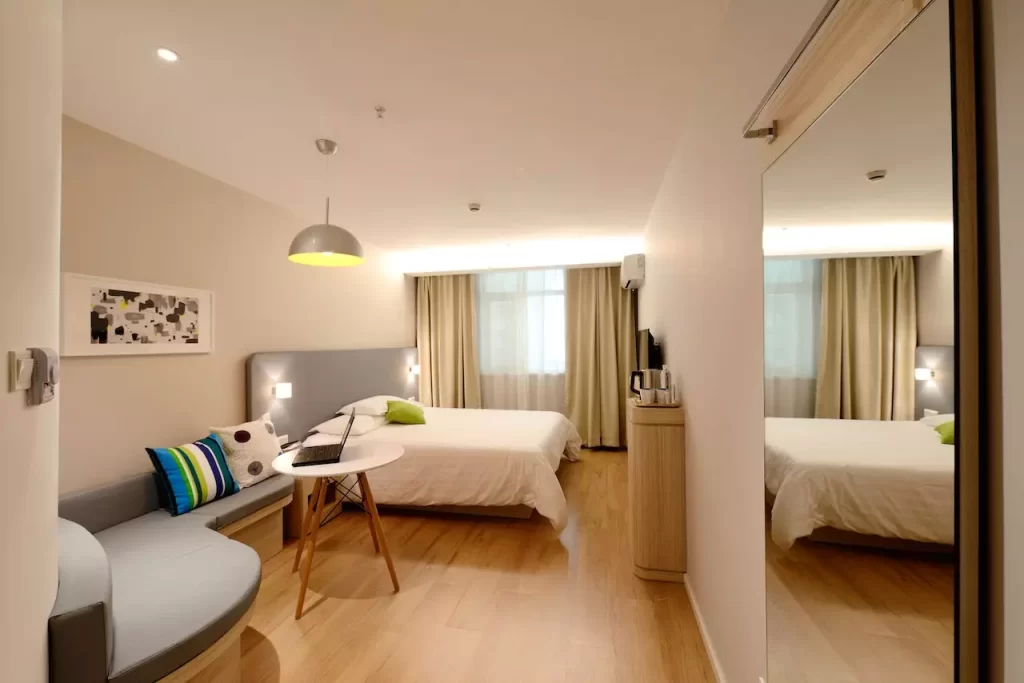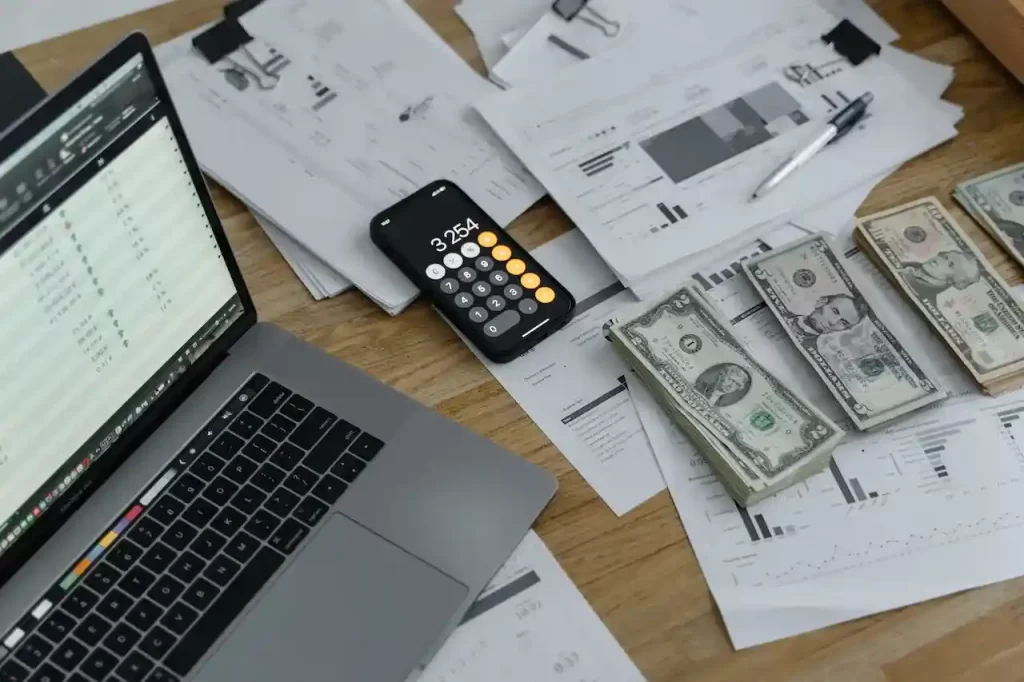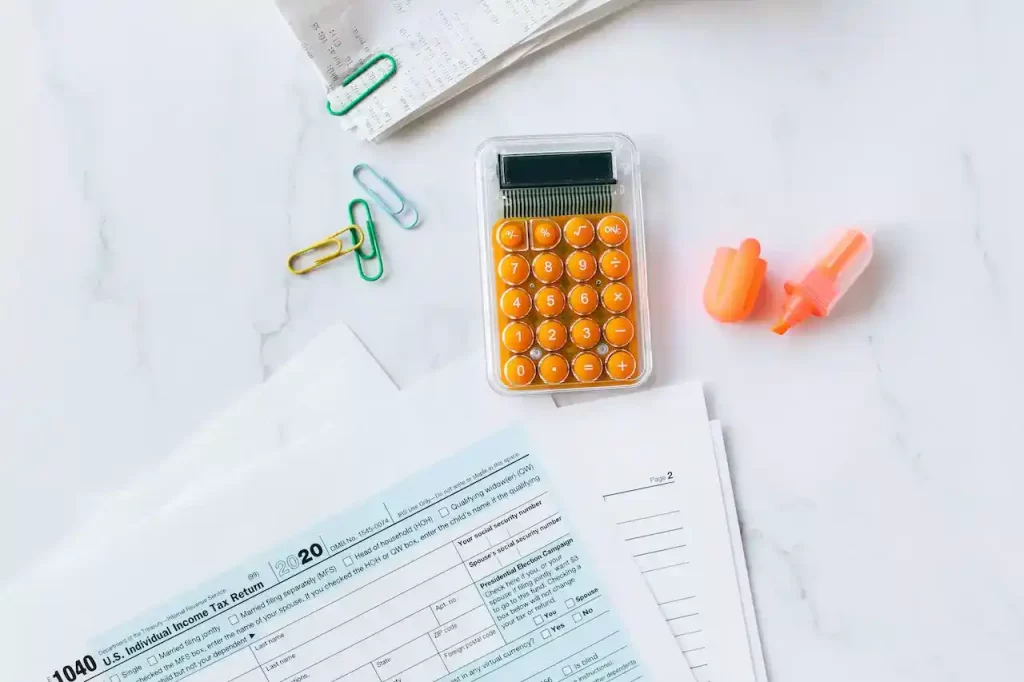Congratulations! You’ve decided to move into your very first apartment. This is an exciting time in your life, but it can also be a bit overwhelming. One of the most important things you can do when preparing to move into your first apartment is to find a good place to live.
Fortunately, there are some tips that can help you find the right apartment for your needs.
First, it’s essential to determine your priorities. What’s important to you in an apartment? Do you want to be close to work or school, or would you prefer a quiet residential neighborhood?
Consider the amenities that matter most to you, such as a gym, a pool, or a washer and dryer in the unit. It’s important to know what you want before you start your search.
When searching for an apartment, start your search early and schedule visits to apartments that meet your criteria. Ask questions and take note of the apartment’s condition, amenities, location, and any potential issues. Take a look around the neighborhood to see if it’s a good fit for you.
Now that we’ve covered these tips, let’s begin with the budgeting part. Creating a budget is a crucial part of moving into your first apartment. It will help you manage your expenses, avoid overspending, and ensure that you can afford to pay your rent and bills each month.
By following the tips above, you can find an apartment that meets your needs and fits your budget. Remember to be patient and thorough in your search to ensure you find the best possible apartment for you.
Once you have a clear idea of your priorities, it’s time to set a budget. Determine how much you can afford to spend on rent and other expenses, and be sure to factor in additional costs like utilities, internet, and parking.
This will help you avoid overspending and ensure that you can afford the apartment you choose.
So let’s dive into the budgeting part and maximize your best options…
Here Are Some Helpful Things You Can Download
Determine Your Income
One of the first steps is to determine your income. This might seem like an obvious step, but it’s essential to understand how much money you have coming in each month before you start allocating it to expenses.
When determining your income, make sure to calculate your take-home pay after taxes and any deductions. This is the money you have available to spend on your expenses. If you have a part-time job or a freelance gig, make sure to factor in the irregularity of your income.
It’s also important to be realistic about your income. While it can be tempting to overestimate how much money you have available, this can lead to overspending and financial stress.
It’s better to underestimate your income and be pleasantly surprised at the end of the month when you have some extra cash.
If you’re struggling to calculate your budget, I’ve made a simple budgeting guide that you can follow to [[How To Create An Easy To Follow Budget|understand your budget]] in a matter of minutes.
Once you have a clear understanding of your income, you can start allocating it to your expenses. This includes your rent, utilities, insurance, and any other bills you have to pay every month. Remember to also allocate an amount for unexpected expenses like medical bills, car repairs, and emergency repairs.
By determining your income, you’ll have a clear understanding of how much money you have available to spend each month.
This will help you create a budget that works for you and ensures that you can cover your expenses without overspending.
List Your Fixed Expenses
When it comes to budgeting for your first apartment, it’s important to list your fixed expenses. Fixed expenses are those that don’t change from month to month, such as rent, insurance, and utilities.
By listing your fixed expenses, you can get a better understanding of how much money you need to allocate to these expenses each month.
Start by listing your monthly rent, including any additional fees or deposits. Next, add up your monthly utility bills, including electricity, water, gas, and internet. If you’re required to have renter’s insurance, add that to your list as well.
Once you have a list of your fixed expenses, you can add them up to determine how much money you need to set aside each month to cover these expenses. This will help you create a realistic budget that ensures you can cover your expenses without overspending.
It’s important to note that while fixed expenses don’t change from month to month, they can still vary over time.
For example, your utility bills may be higher in the winter months, when you’re using more heat. It’s important to factor in these seasonal variations and adjust your budget accordingly.
By listing your fixed expenses, you can create a budget that works for you and ensures that you can cover your monthly expenses without overspending.
This is an important step in preparing to move into your first apartment and can help you avoid financial stress down the line.
List Your Variable Expenses
It’s also important to list your variable expenses. Variable expenses are those that can change from month to month, such as groceries, entertainment, and transportation. These expenses can add up quickly, so it’s important to keep track of them and include them in your budget.
To list your variable expenses, start by tracking your spending for a few weeks. This can be done using an app, a spreadsheet, or even a simple notebook. Record every expense, no matter how small, so you can get an accurate idea of how much you’re spending. You can find more about this in How To Create An Easy To Follow Budget.
Next, categorize your expenses into different groups, such as groceries, transportation, entertainment, and personal care. This will help you see where you’re spending the most money and where you might be able to cut back.
Once you have a list of your variable expenses, you can add them up and include them in your budget.
Make sure to include a buffer for unexpected expenses, such as car repairs or medical bills. This will ensure that you’re prepared for any unforeseen expenses that might come up.
By listing your variable expenses, you’ll have a better understanding of how much money you need to allocate to each category each month. This will help you create a realistic budget and ensure that you’re not overspending in any one area.
With a little planning and organization, you can create a budget that works for you and ensures that you’re able to cover all of your expenses while still having some fun and enjoying your new apartment.
Prioritize Your Expenses
Managing your expenses is an essential part of budgeting for your first apartment, and it’s important to prioritize them to avoid overspending. You need to separate your “wants” from your “needs” to determine what you can afford and what you can’t.
Your fixed expenses, such as rent, utilities, and insurance, should be your top priority. You need to allocate a specific amount of money each month to cover these expenses.
After you’ve paid these fixed expenses, you can then move on to your variable expenses, such as groceries, transportation, and entertainment.
When prioritizing your variable expenses, it’s important to focus on your necessities first, such as groceries and transportation. These expenses should be given priority over non-essentials like entertainment and dining out.
You need to ensure that you have enough money set aside for the things that you need before spending on the things that you want.
One effective strategy for prioritizing your expenses is the 50/30/20 rule. This rule suggests that 50% of your income should be allocated towards your needs, 30% towards your wants, and 20% towards savings.
This can help you maintain a balance between spending and saving, and ensure that you have enough money set aside for emergencies and future expenses.
By prioritizing your expenses, you can create a budget that works for you and ensures that you’re not overspending in any one area. This is an important step in preparing to move into your first apartment and can help you avoid financial stress down the line.
Cut Expenses
If you’re struggling to make ends meet or find that you don’t have enough money left over for savings, it might be time to start cutting expenses.
There are a few simple ways that you can do this without having to make major sacrifices or significant changes to your lifestyle.
One of the easiest ways to cut expenses is to simply reduce the amount that you spend on non-essential items like dining out or entertainment. You can still enjoy these activities, but do them less frequently or find more affordable options. Another option is to look for discounts or deals when making purchases to save money. I’ve already made a guide on How To Save Money On Groceries which you can read here.
Another way to cut expenses is to look for ways to reduce your fixed expenses. For example, you can try negotiating with your landlord to reduce your rent or finding a roommate to split the cost.
You can also find ways to save money on utilities by using energy-efficient appliances or turning off lights when you leave a room.
It’s also important to prioritize your expenses and focus on your necessities. By cutting back on non-essential items, you can allocate more money towards your fixed expenses and ensure that you have enough to cover your basic needs.
Ultimately, cutting expenses is a key part of budgeting for your first apartment. It can help you save money, reduce financial stress, and ensure that you’re living within your means.
By being mindful of your spending and finding ways to reduce your expenses, you can create a budget that works for you and helps you achieve your financial goals.
You can also save a ton of money on buying clothes, Here is an article dedicated just for that.
Track Your Expenses
Tracking your expenses is the next step in budgeting for your first apartment. By monitoring your spending, you can gain a clear understanding of where your money is going and identify areas where you can cut back or save.
There are several ways to track your expenses, including using a budgeting app or software, creating a spreadsheet, or keeping a physical journal. Whatever method you choose, it’s important to be consistent and diligent in tracking your expenses.
When tracking your expenses, it’s important to be thorough and include everything, no matter how small. This includes things like coffee, snacks, and other small purchases that can add up over time. By tracking these expenses, you can see where your money is going and find ways to reduce your spending.
It’s also helpful to categorize your expenses, so you can see how much you’re spending on things like rent, utilities, groceries, and entertainment. This can help you identify areas where you may be overspending and make adjustments to your budget.
Learn how you can save moeny on entertainment right here.
By tracking your expenses, you can gain greater control over your finances and make more informed decisions about how to spend your money.
This is especially important when preparing to move into your first apartment, as it can help you create a realistic budget and avoid overspending.
Adjust Your Budget As Needed
Now that you’ve created a budget for your first apartment, you need to make sure that you adjust your budget as need.
However, it’s important to remember that your budget is not set in stone and may need to be adjusted as you go. This is especially true in the early months of living on your own, as you may encounter unexpected expenses or changes in your income.
If you find that your expenses are higher than you initially anticipated, it may be necessary to make adjustments to your budget.
This could include cutting back on non-essential items, finding ways to reduce your fixed expenses, or even increasing your income through a side job or other means.
Similarly, if you find that you have extra money left over each month, you may want to consider adjusting your budget to increase your savings or allocate more funds to other areas.
Ultimately, the key to success when budgeting for your first apartment is to be flexible and adaptable. Your budget is a living document that should change as your circumstances change.
By being mindful of your spending, tracking your expenses, and adjusting your budget as needed, you can achieve your financial goals and enjoy a comfortable and stress-free living experience in your new apartment.
Conclusion
You’ve taken a big step towards independence by deciding to move into your first apartment. Budgeting may seem intimidating at first, but with the right mindset and a little bit of effort, you can take control of your finances and enjoy your new living situation without the added stress of financial strain.
Remember that the key to successful budgeting is taking the time to understand your income, expenses, and spending habits.
By being honest with yourself and making a plan that works for you, you can set yourself up for financial success.
Don’t be discouraged if you encounter unexpected expenses or find that you need to make adjustments to your budget.
This is a natural part of the budgeting process, and the ability to adapt and change course as needed is a valuable skill that will serve you well throughout your life.
Most importantly, don’t forget to celebrate your successes along the way. Whether it’s finding ways to cut expenses, reaching your savings goals, or simply sticking to your budget for the first month, every milestone is worth acknowledging and celebrating.
By taking these steps and maintaining a positive attitude, you can achieve your financial goals and enjoy all the benefits that come with living in your first apartment. Good luck!
#budgetingforapartment





